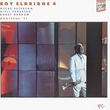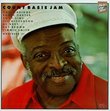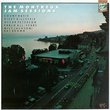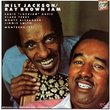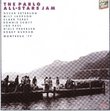| All Artists: Eddie "Lockjaw" Davis Title: Montreux '77 Members Wishing: 1 Total Copies: 0 Label: Wea Corp Release Date: 4/20/1989 Album Type: Live Genre: Jazz Styles: Soul-Jazz & Boogaloo, Bebop Number of Discs: 1 SwapaCD Credits: 1 UPC: 025218038423 |
Search - Eddie "Lockjaw" Davis :: Montreux '77
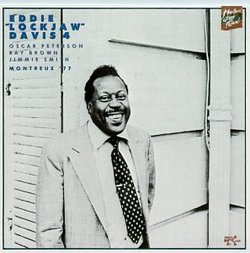 | Eddie "Lockjaw" Davis Montreux '77 Genre: Jazz
|
Larger Image |
CD DetailsSimilar CDs
|
CD ReviewsJaws with Oscar and Ray: Earth-shaking chemistry Samuel Chell | Kenosha,, WI United States | 03/31/2007 (5 out of 5 stars) "I'm not sure why Norman Granz released so many albums with the title Montreux '77, thereby encouraging listeners to lump them all together and simply ignore them. In any case, this one is certainly a stand-out: Oscar is in full stride and moreover reunited with Ray Brown. Eddie "Lockjaw" Davis, moreover, is arguably the Oscar Peterson of the tenor saxophone, simply a fearless, accomplished, inimitable, untouchable player, whose unique rhythmic drive makes him ideally suited to Oscar while his rougher-hewn tones make him a complementary contrast to the pianist's polished style.
It's a wonder Jaws doesn't betray more nervousness, performing all alone with Oscar's trio, especially since the pianist shows absolutely no mercy, counting off the opener at a tempo that would have most players looking for a handy exit. The ensuing numbers are no less busy. Even on the "down tempo" of "The Breeze and I" Oscar double-times his solo, almost threatening to bury the featured soloist in a shower of flying notes. But Jaws was never one to shirk from a challenge, which is exactly what he gets on this occasion. By the time the group gets to a blues, "Telegraph," he's in full control, making his message so loud and clear that it's Oscar who's breathing hard. Jaws goes on to top himself on 'Land of Dreams," using that patented altimissimo register of his as much to spearhead the rhythm section as to create melodic excitement. Now Oscar really has to go after him--which he does, ingeniously employing repeated quarter notes and rhythms in the manner of Lockjaw himself. Predictably, the program ends as it began--with another burner, "Blue Lou" (Is it possible to play any faster?). Jimmie Smith's drums are in there somewhere, but quite frankly the other three musicians are in such a zone that I wonder how any drummer's hi-hat could synch with the blurred off-beats. Simply put, there's no group of players alive who, even if they put their minds to it, could produce music such as this in the present millennium." |

 Track Listings (7) - Disc #1
Track Listings (7) - Disc #1